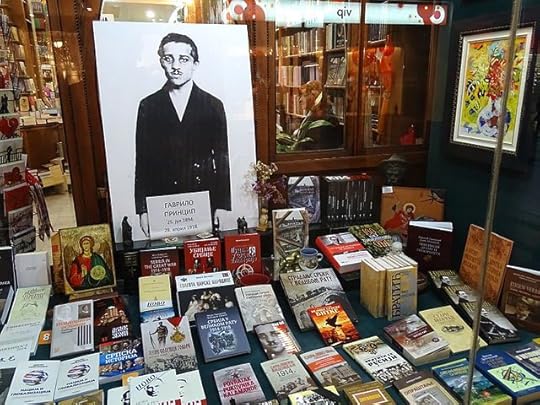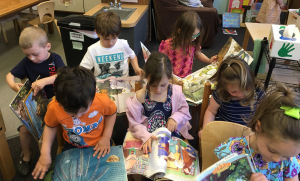K.D. Dowdall's Blog, page 58
May 26, 2017
WHAT MAKES BAD WRITING BAD
Virginia Woolf: “The psychic risk of a novel such as Woolf’s The Waves is vast – particularly for someone for whom psychic risk was so potentially debilitating.” This article is Written by Toby Litt who is a London-based writer. Hospital, his latest novel, is published by Hamish Hamilton. ( A reblog from 2015)
Bad writing is mainly boring writing. It can be boring because it is too confused or too logical, or boring because it is hysterical or lethargic, or boring because nothing really happens. If I give you a 400 page manuscript of an unpublished novel – something that I consider to be badly written – you may read it to the end, but you will suffer as you do.
It’s possible that you’ve never had to read 80,000 words of bad writing. The friend of a friend’s novel. I have. On numerous occasions. If you ask around, I’m sure you’ll be able to find a really bad novel easily enough. I mean a novel by someone who has spent isolated years writing a book they are convinced is a great work of literature. And when you’re reading it you’ll know it’s bad, and you’ll know what bad truly is.
The friend of a friend’s novel may have some redeeming features – the odd nicely shaped sentence, the stray brilliant image. But it is still an agony to force oneself to keep going. It is still telling you nothing you didn’t already know.
Bad writers continue to write badly because they have many reasons – in their view very good reasons – for writing in the way they do. Writers are bad because they cleave to the causes of writing badly.
Bad writing is almost always a love poem addressed by the self to the self. The person who will admire it first and last and most is the writer herself.
When Updike began writing Rabbit, Run it was either going to be a great technical feat or a humiliating misjudgment
While bad writers may read a great many diverse works of fiction, they are unable or unwilling to perceive the things these works do which their own writing fails to do. So the most dangerous kind of writers for bad writers to read are what I call excuse writers – writers of the sort who seem to grant permission to others to borrow or imitate their failings.
I’ll give you some examples: Jack Kerouac, John Updike, David Foster Wallace, Virginia Woolf, Margaret Atwood, Maya Angelou. Bad writers bulwark themselves against a confrontation of their own badness by references to other writers with whom they feel they share certain defense of worthy characteristics. They write defensive admirations: “If Updike can get away with these kind of half-page descriptions of women’s breasts, I can too” or “If Virginia Woolf is a bit woozy on spatiality, on putting things down concretely, I’ll just let things float free”. If another writer’s work survives on charm, you will never be able to steal it, only imitate it in an embarrassingly obvious way.
Bad writing is writing defensively; good writing is a way of making the self as vulnerable as possible. The psychic risk of a novel such as Woolf’s The Waves is vast – particularly for someone for whom psychic risk was so potentially debilitating. When Updike began writing Rabbit, Run all in the present tense, it was either going to be a great technical feat or a humiliating aesthetic misjudgment. (Excuse writers aren’t, in themselves, bad writers; not at all.)
Often, the bad writer will feel that they have a particular story they want to tell. It may be a story passed on to them by their grandmother or it may be something that happened to them when they were younger. Until they’ve told this particular story, they feel they can’t move on. But because the material is so close to them they can’t mess around with it enough to learn how writing works. And, ultimately, they lack the will to betray the material sufficiently to make it true.
Bad writers often want to rewrite a book by another writer that is written in a different time period, under completely different social conditions. Because it’s a good book, they see no reason why they can’t simply do the same kind of thing again. They don’t understand that even historical novels or science fiction novels are a response to a particular moment. And pretending that the world isn’t as it is – or that the world should still be as it once was – is disastrous for any serious fiction.
Any attempt to write fiction in order to make the world a better, fairer place is almost certain to fail
Conversely, bad writers often write in order to forward a cause or enlarge other people’s understanding of a contemporary social issue. Any attempt to write fiction in order to make the world a better, fairer place is almost certain to fail. Holding any value as more important than learning to be a good writer is dangerous. Put very simply, your characters must be alive before they seek justice.
Bad writers often believe they have very little left to learn, and that it is the literary world’s fault that they have not yet been recognised, published, lauded and laurelled. It is a very destructive thing to believe that you are very close to being a good writer, and that all you need to do is keep going as you are rather than completely reinvent what you are doing. Bad writers think: “I want to write this.” Good writers think: “This is being written.”
To go from being a competent writer to being a great writer, I think you have to risk being – or risk being seen as – a bad writer. Competence is deadly because it prevents the writer risking the humiliation that they will need to risk before they pass beyond competence. To write competently is to do a few magic tricks for friends and family; to write well is to run away to join the circus.
Your friends and family will love your tricks, because they love you. But try busking those tricks on the street. Try busking them alongside a magician who has been doing it for 10 years, earning their living. When they are watching a magician, people don’t want to say, “Well done.” They want to say, “Wow.”
At worst, on a creative writing course, the tutor will be able to show you how to do some magic tricks; at best, they will teach you how to be a good magician; beyond that, though, is doing magic – and that you will have to learn for yourself. For what a tutor can’t show you is how to do things you shouldn’t be able to do.
Toby Litt is a London-based writer. Hospital, his latest novel, is published by Hamish Hamilton.


May 25, 2017
Cast Your Writing Prompt Vote! Wk 2, K & D Suspenseful Collection
I think Didi and Kim have great prompts and doing short stories hones writing skills better than most other writing exercises. Vote now and write a very short story. via https://didioviatt.wordpress.com
A new week, a new genre, a new improv writing prompt that YOU CHOOSE! (some stories will be 18+ and some will not. We plan to cover everything!)
I’m so excited to be working on weekly short stories with Kim! She’s an amazing writer, and it turns out we have so much in common for a couple of gals who live in such different worlds!
Yesterday we posted our very first short story. It’s a twisted historical fiction featuring a WOMAN SERIAL KILLER ON DEATH ROW! Wow right! All of you fantastical nerdy voters picked the prompt “It was the first time I killed a man”and we ran with it! Read Story Here It’s juicy, dark, psychological, and packed with suspense. I couldn’t be any happier with our first challenge!
But that’s not why where here today is it? Because TODAY YOU GET TO VOTE ON ANOTHER…
View original post 207 more words


May 23, 2017
Look What Happened!
This is a wonderful post (via https://jenniefitzkee.com) and I was so surprised at these 4 year old students gathering together to read, even though they can’t truly read yet. However, the environment in their teacher’s school room has fostered a love of books and the need to want to learn to read. Remarkable!
Independent reading. SSR. Call it what you like. It is crossing over from learning to read words, to learning to read. Parents and teachers alike take a deep breath and clasp their hands together when this happens. There are no words to say. Words might spoil the moment. After all, major milestones don’t happen often.
Look what happened!
I was busy in the classroom, working with children on a 100-piece puzzle. Things were bustling yet quiet. I looked over at the big rug and saw children dragging chairs. Little did I know that they wanted to arrange chairs in order to read books. After they set up chairs on the rug, they went for the books. Then they sat down, together, to read independently.
These are young children who cannot read, yet that is exactly what they are doing. Babies hear words; that’s how they learn to talk. …
View original post 226 more words


May 22, 2017
A Review: Wicca Girl, The Flowering
This story is a heartfelt journey of the present and past world of wise women, often referred to is Wicca Healers that were mercilessly hunted, tortured and executed for witchcraft. Califia Montalvo, the author, weaves a story rich with complex characters, mystery and suspense. The protagonist is Simi, a young girl who is mystified at the supernatural events that occur and appear to be connected to her. As she matures into womanhood she learns to harness this ability to create forces that can change people’s lives. She eventually learns of a surprising explanation of why hers is a life always at the forefront of what appears to be mysterious paranormal events.
There are journeys in this engaging story that relate to the present, in times past, throughout history, that enfold into the story regarding the treatment of women healers during the time of the witch trial executions that lasted over a hundred years, where tens of thousands of women healers were burned at the stake. This historical matter adds to the complexity of the story in a well-thought out manner.
Montalvo’s story is a plethora of fascinating details regarding the women that were persecuted for their intelligence, their communion with nature, and what others saw as inexplicable knowledge deemed mysterious, even evil, as they used their ability heal others. I found this novel to be well-written with interesting details that made be glad I did not live in an early time when any woman could be charged with witchcraft. I highly recommend The Wicca Girl, the Flowering.


May 21, 2017
What is True Love?
True Love is Selfless. It is prepared to sacrifice. Sadhu Vaswani
[image error]“Love is the emblem of eternity; it confounds all notion of time; effaces all memory of a beginning, all fear of an end.” Madame de Stael
“Love is the voice under all silences, the hope which has no opposite in fear; the strength so strong mere force is feebleness: the truth more first than sun, more last than star.” e. e. cummings
[image error]Let Me Not to the Marriage of True Minds, William Shakespeare, Sonnet # 16
Let me not to the marriage of true minds
Admit impediments. Love is not love
Which alters when it alteration finds,
Or bends with the remover to remove:
O, no! it is an ever-fixed mark,
That looks on tempests and is never shaken;
It is the star to every wandering bark,
Whose worth’s unknown, although his height be taken.
Love ’s not Time’s fool, though rosy lips and cheeks
Within his bending sickle’s compass come;
Love alters not with his brief hours and weeks,
But bears it out even to the edge of doom.
If this be error, and upon me prov’d,
I never writ, nor no man ever lov’d.
[image error]What Shakespeare is referring to in this love sonnet: As the title suggests, the poem argues that true love will not be impeded, changed or stopped by transitory circumstances. True love, implicitly opposed to lust or some shallower form of affection, is a fixed form: the narrator describes it as “an ever-fixed mark.” The poem sets it in opposition to all that is changeable.
If the love between two people is real, it will rise above whatever temporary material conditions might get in its way. If trouble comes, which the poet likens to “tempests” or storms, true lovers are not “shaken” by this. If time ravages the looks of the beloved, wreaking damage on rosy cheeks and lips, that doesn’t matter either: love transcends physical appearance. The poet likens true love to a star that stays unchanging in the sky. It is eternal. The poem argues that true love is a perfect, Platonic form based on the union of minds, impervious to what can happen to the body.
If we understand this sonnet as the voice of a lover speaking to his beloved, it mounts a strong and fervent argument in favor of the depth and sincerity of the poet’s love, reflecting the heart of a person who even promises to stay with the beloved to “the edge of doom.” Written by F. Steinbeck 2016


May 20, 2017
Problem, Lesson, or Opportunity? – Guest Post by, Tina Frisco…
Oh my gosh, this is one of the most astute, knowledgeable, well-thought-out assertions on learning to think through anger, fear and self doubt by Tina Frisco via https://tinafrisco.com/
 Chris The Story Reading Ape's Blog
Chris The Story Reading Ape's Blog

Image is courtesy of Lucie Stastkova
When faced with an inexorable problem where emotions run high, knowing what to do can be a challenge. Rational thinking becomes obfuscated, forcing us into a holding pattern of circular thought.
Anger wants to place blame on others. Obsession with fine points masks the big picture. Abject frustration insists we bury our heads in the sand. Emotions churn and become ill-defined. Focus obscures. Common sense derails. Indigestion, insomnia, or worse take up residence.
None of these gets us anywhere. All of them threaten our sanity and plunge us into a maelstrom of inimical emotion. What to do?
Taking in a few deep breaths is a good first step toward relaxing. Listening to soothing music, meditating, or taking a long bath are a few ways to ease the constriction felt in the midsection. Relaxing the body helps mitigate mental and emotional distress. We all know…
View original post 779 more words


May 19, 2017
A Review: Far from the Madding Crowd
[image error]Far from the Madding Crowd is the first of Hardy’s novels to gain him widespread popularity. What can one say about the incredible writing of Thomas Hardy. This story is lavish and romantic with characters that are unforgettable. The historical details are rich in nuance and fascinating for the period. Hardy’s use of the English language is exquisite. When readers discover Thomas Hardy they always comment, “I fell in love with 19th Century English literature because of Thomas Hardy.” And, so did I.
The Story is set against the backdrop of the beautiful landscape in Wessex, England. The overall theme of the story questions rural values and is striking for its singular sensibility. The story revolves around Bathsheba Everdene and her suitors, as well as the Bathsheba’s difficulties managing a large farm. One of her suitors, Gabriel Oak is attracted to the very modern sensibility of the independent and spirited Bathsheba. She is also charming, beautiful and vain. However, he must compete with the roguish and dashing soldier, Sergeant Troy, and the wealthy, respectable, middle-aged Farmer Boldwood. While their fates depend upon the choice Bathsheba makes, she must learn the consequences of vain flirtations with all three.


May 17, 2017
Altered Perception via Didi Oviatt’s
I really found this post exceptional in every way. We have to understand that while some readers love a particular author’s book, other may dislike it intensely.
A wonderful, insightful post, that I believe explains a lot; make sure the title of a novel reflects the content of your novel and that even the antagonist must have one redeeming quality. https://didioviatt.wordpress.com/2017/05/17/altered-perception
If you were to take three people and put them all in the same room, and then give them all the exact same book to read; then I’d imagine the results would go something like this:
 Person #1 (we’ll call her Betty) will dive right in. She’ll be sitting up straight with eyes wide, and slightly moving her lips in excitement while she reads. Betty will occasionally bounce her knee as she tries to contain the building energy, and then at the end of the book her lip will turn up in a satisfied smirk. After nodding her head in agreement with the way the plot line unfolded, Betty will sit back, fold her arms, and recall her favorite parts of the book. Patiently, she’ll wait for the other two slow pokes in the room to finish up.
Person #1 (we’ll call her Betty) will dive right in. She’ll be sitting up straight with eyes wide, and slightly moving her lips in excitement while she reads. Betty will occasionally bounce her knee as she tries to contain the building energy, and then at the end of the book her lip will turn up in a satisfied smirk. After nodding her head in agreement with the way the plot line unfolded, Betty will sit back, fold her arms, and recall her favorite parts of the book. Patiently, she’ll wait for the other two slow pokes in the room to finish up.
Person #2 (She’ll be Joan) will sink into the seat provided, wiggling at the waist and shrugging her shoulders until her body is completely relaxed. She really only came…
View original post 520 more words


May 15, 2017
Collaboration
Another awesome poem that is so much more than a poem – it is like a treatise of faith in human rights and how to get there and make it happen. Fantastic
A collaboration among all nations
not based upon dissemination
but a collective unification,
to bring the world into assimilation
to reduce wars and the disintegration
of humanity through privation,
and save us all from annihilation
this should be a common sense realisation,
as we hit back with an intellectual retaliation
to reduce down the demoralization,
and put a stop demonisation of any race,
through the divisive tribalisation
and all the problems and tribulations,
that leave this world in isolation
through toxic hate and violation,
of peoples rights given by creation.


May 14, 2017
Why Autographed Novels Put Bookstores in Danger
I found this intriguing post to be eye-opening and I found myself weighting the pros and cons of this kind of litigation against independent bookstore owners. What do WordPress bloggers think? K D
Via: https://kristentwardowski.wordpress.com/2017/05/14/when-autographed-novels-put-bookstores-in-danger/
Book Passage is a quirky little bookstore situated in the Bay Area of California. Sure, it sells books, but it also does so much more. Every year the shop hosts over 700 author events. During these events, authors often sign books, and if any signed books remain after the crowds have thinned, Book Passage sells copies in the store. Because the shop wants to keep these items accessible to everyone, they sell autographed copies for the same amount of money as the mundane editions to books.
This practice is a wonderful one, but Book Passage may soon have to stop selling autographed books all together.
 Image via Wikimedia, Adam Jones, “Bookstore Display for Gavrilo Princip – Assassin of Archduke Ferdinand (1914) Belgrade, Serbia, 17 November 2014.
Image via Wikimedia, Adam Jones, “Bookstore Display for Gavrilo Princip – Assassin of Archduke Ferdinand (1914) Belgrade, Serbia, 17 November 2014.
Late last week I saw a troubling press release put out for the Book Passage by the legal group the Pacific Legal Foundation. On…
View original post 372 more words










